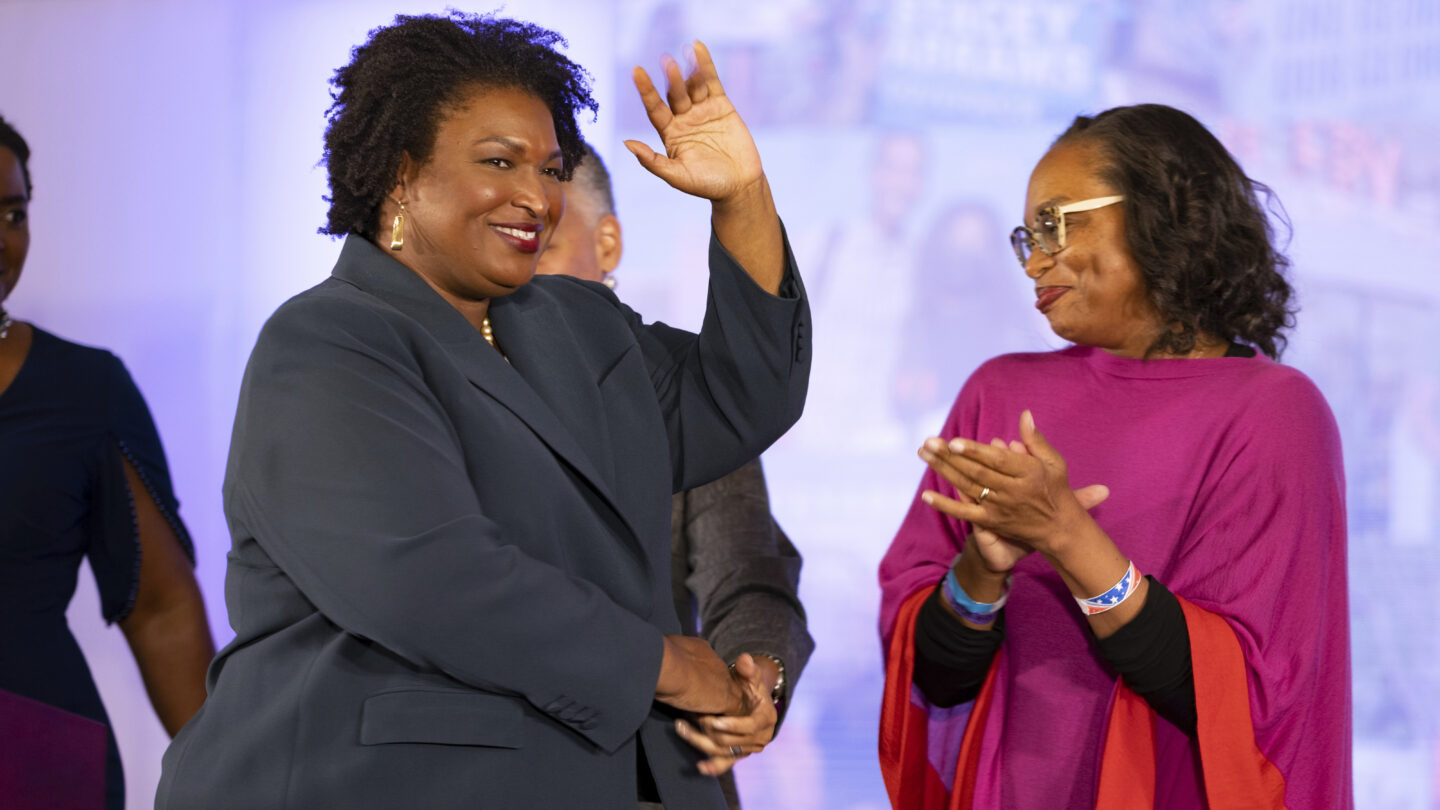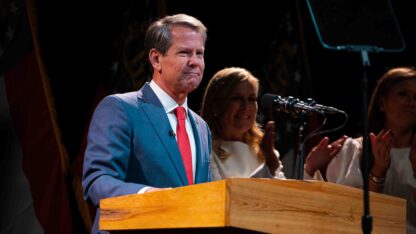Stacey Abrams and Beto O’Rourke catapulted to Democratic stardom in 2018 by defying expectations and nearly pulling off upsets in Georgia and Texas.
But they flopped four years later in governors’ races Tuesday even as other Democrats muscled out remarkably resilient victories in the midterm elections: Abrams lost her rematch with Georgia Gov. Brian Kemp by 7 points, and Texas Gov. Greg Abbott clobbered O’Rourke by double digits.
The wipeouts have dimmed the bright future that Democrats once saw for two young sensations who openly explored national ambitions, pushed Republicans to the brink on tough turf and captivated liberal donors nationwide — but are now a combined 0-5 the last three election cycles despite no shortage of money, overflowing crowds or fawning media attention.
“Democrats owe a huge debt of gratitude to both Stacey Abrams and Beto,” said Tom Perez, who was chair of the Democratic National Committee when the duo burst on the scene in 2018.
Neither Abrams, 48, nor O’Rourke, 50, has said whether they will run again. Comebacks are a fixture of American politics, and as the disappointment of badly losing two campaigns that raised nearly $200 million combined sank in this week among Democrats, many party figures and supporters were not ready to write them off.
But any third try — or, in the case of O’Rourke, who flamed out as a presidential candidate in 2019, a fourth try — won’t get easier.
No longer are they fresh faces. Other ambitious Democrats in Georgia and Texas could itch for their own turn. And voters who have had Abrams or O’Rourke on their ballots twice now have hardened in their opinions of them. In Georgia, polls showed Abrams generally trailing Kemp in favorability during their race.
Among Texas voters, about 4 in 10 said they had a favorable opinion of O’Rourke, while roughly half viewed him unfavorably, according to AP VoteCast, an expansive survey of 3,400 voters in the state. It underscored how many Texans have shifted on the former El Paso congressman since 2018, when O’Rourke ran a more ideologically blurry campaign that came within 3 points of ousting Republican Sen. Ted Cruz.
But this time, while trying to become the first Democrat to win a governor’s race in Texas since 1990, the liberal positions O’Rourke took while running for president haunted him in the state’s vast rural areas that have fortified GOP power for decades.
“You cannot run as a Democrat and take this extreme position, being anti-gun, open borders. It doesn’t work for the rest of the state of Texas,” said Democratic Rep. Henry Cuellar, who won reelection Tuesday after crushing an unusually aggressive play by Republicans along the southern border.
Democratic pollster Zac McCrary, who has polled extensively in both Texas and Georgia, cautioned against oversimplifying Abrams and O’Rourke as losers even if it’s not clear what they’ve gained personally — or what their options are going forward.
So far, no incumbent governors have lost reelection this year, and McCrary said it would be foolish not to acknowledge the strengths of Abbott and Kemp. Certainly, Abrams faces additional scrutiny because she ran tens of thousands of votes behind Democratic Sen. Raphael Warnock, who led Republican challenger Herschel Walker and now advances to a Dec. 6 runoff.
But McCrary said Walker’s troubles as a candidate — scrutiny on his past, his qualifications and his policy heft — must also be taken into consideration.
“It’s not as simple as looking at the two races and assuming that Raphael Warnock is so obviously a better candidate than Stacey Abrams,” he said.
Regardless of whether Abrams and O’Rourke run again, Democrats in Georgia and Texas shudder at the idea of them receding into private life. Both are singular fundraising and organizational powerhouses who, at least until now, have commanded an almost unrivaled ability among Democrats to quickly whip up millions of dollars and summon door-knockers into action.
Perez said President Joe Biden wouldn’t have won Georgia in 2020 and Warnock and Sen. Jon Ossoff couldn’t have given Democrats a Senate majority two months later without the groundwork Abrams set out.
“The infrastructure Stacey built may not have benefited her in the short run, but it has benefited democracy by putting Georgia in play,” he said.
Texas Democrats, meanwhile, are now back to recalibrating their hopes again, with or without O’Rourke.
“He’s going to have to make some decisions on what he wants to do,” said Texas Democratic Party Chair Gilberto Hinojosa, who struggled to find a candidate even willing to run against Abbott before O’Rourke got in the race last year. “But he remains extremely popular with the Democratic base.”
Addressing supporters after his loss Tuesday night, O’Rourke didn’t sound like he intended to go far. “I don’t know what my role or yours will be going forward, but I’m in this fight for life,” he said.
Brooke Hudspeth, a 36-year-old in suburban Dallas, voted for O’Rourke despite her doubts that it would work out this time or any other. “Texas is never going to go Democrat,” she said. “If he wants to move on to a different state, he’s welcome to.”
Barrow reported from Atlanta. Associated Press writers Acacia Coronado in Austin, Jeff Amy in Atlanta, Jake Bleiberg in Dallas and Terry Tang in Phoenix contributed to this report.
Follow the AP’s coverage of the 2022 midterm elections at https://apnews.com/hub/2022-midterm-elections. And check out https://apnews.com/hub/explaining-the-elections to learn more about the issues and factors at play in the midterms.









